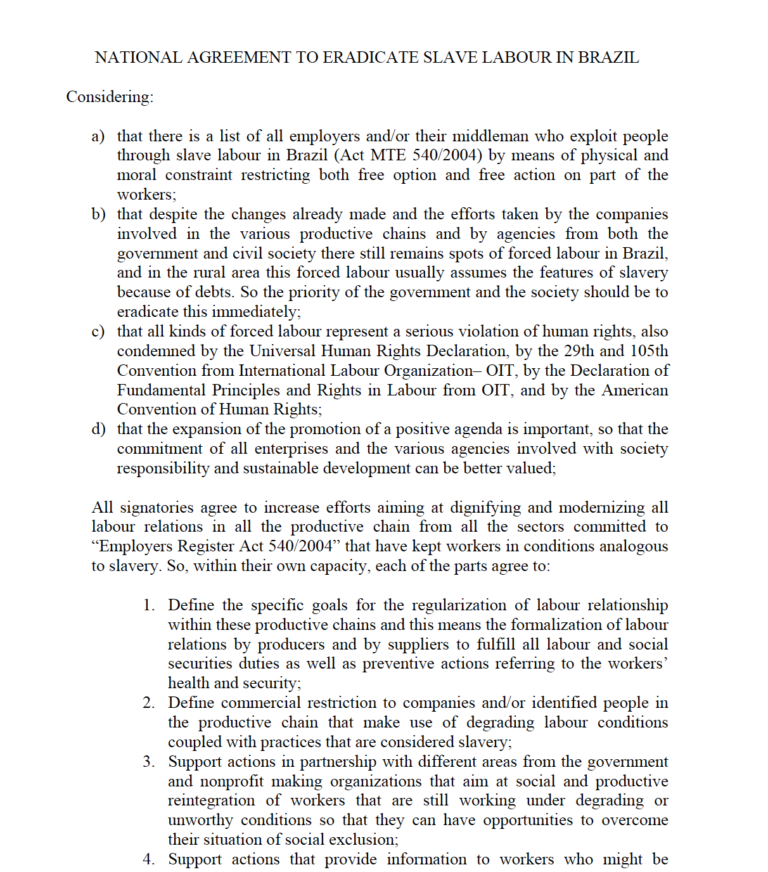The National Pact was established in 2005 by the UN’s International Labour Organization and three Brazilian non-profits: Instituto Ethos, a forum for corporate social responsibility in Brazil, the human rights organization Observatorio Social and the journalist collective Repórter Brasil.
The Pact itself is a two-page document. It establishes the existence of modern slavery in Brazil. It acknowledges the country’s obligation under international law to eradicate it. And it invites companies operating in Brazil that want to join the country’s fight against slavery to commit voluntarily to 10 specific measures in that effort, including but not limited to these: implement clear policies to eliminate slavery from their supply chains and restrict commercial relationships with business partners that appear on the Dirty List; support information campaigns designed to prevent slavery as well as efforts to reinsert workers rescued from slavery into the Brazilian economy; support public-sector efforts undertaken as part of the National Plan to Eradicate Slave Labour; monitor progress against corporate performance indicators; and report the results publicly.
(Summary from the blog of the Catholic Relief Services)

